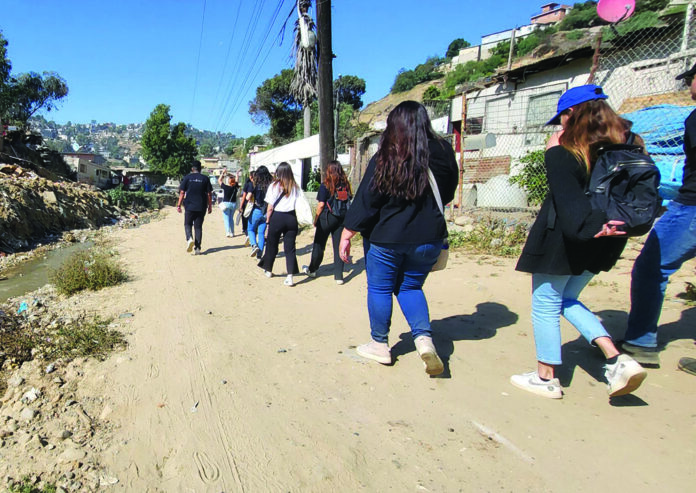by Suzanne Potter
Immigration is a hot-button issue these days, but people studying to become bilingual teachers at one California university are making an effort to lower the temperature.
San Diego State University’s bilingual credential program sends prospective teachers on a four-day trip to impoverished schools in Tijuana, to help them understand the conditions many of their future students experience.
Erika Sandoval from Santa Clarita is a teacher-in-training in her first year of the program. She migrated to the U.S. herself from Mexico at age nine.
“Going back and hearing their stories,” said Sandoval, “some of them having families in the United States, some of them attempting to cross the border – took me back to when my parents had made the decision to come to this country as well. It was very emotional, to be honest.”
The teachers visit a school in a migrant shelter, one that has a program for students who are blind, and a third that is in one of the city’s lowest-income neighborhoods.
Sandoval said kids may be at school in Tijuana one week, and in California the next. So, the empathy gained from a cross-border trip can improve teacher effectiveness going forward.
“When you’re able to connect with them and build that trust with them,” said Sandoval, “there’s community with you, and they’re able to engage them in what you’re teaching them.”
Sarah Maharonnaghsh is a lecturer in the Dual Language and English Learner Education Department at San Diego State University, who helps organize the trips.
She said the teachers in training are often impressed with the Tijuana kids’ behavior – even though they lack adults taking on yard duties, and school supplies are scarce.
“There’s nobody supervising them on the playground, and they all seem to self-regulate,” said Maharonnaghsh. “Or if there’s a box of crayons, the kids are sharing with each other. So, they just see that that collectivist component of Mexican culture.”
She said the program emphasizes respect for the students’ culture, and helps teachers focus on kids’ assets rather than their deficits.
Support for this reporting was provided by Lumina Foundation.s



